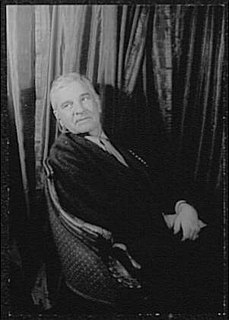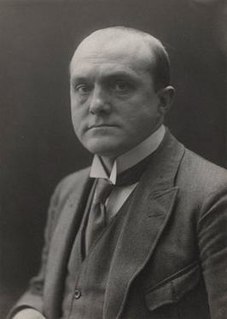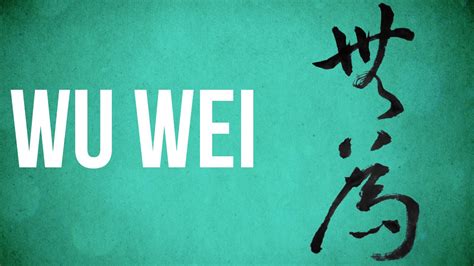A Quote by Rajneesh
Man is busy desiring to find something which only he can do so that his ego acquires importance.
Related Quotes
Wherever desire exists ego exists, and wherever ego exists illusion exists because ego is the greatest illusion there is. Even in a beggar who has nothing else you will find the same ego as you will find in Alexander the Great, because desiring is the same. Alexander the Great may have much money and much power, that does not matter; he is still desiring. The beggar may not have anything, but he is also desiring.
A man rising in the world is not concerned with history; he is too busy making it. But a citizen with a fixed place in the community wants to acquire a glorious past just as he acquires antique furniture. By that past he is reassured of his present importance; in it he finds strength to face the dangers that lie in front of him.
Every man is of importance to himself, and, therefore, in his own opinion, to others; and, supposing the world already acquainted with his pleasures and his pains, is perhaps the first to publish injuries or misfortunes which had never been known unless related by himself, and at which those that hear them will only laugh, for no man sympathises with the sorrows of vanity.
The functional importance of the ego is manifested in the fact that normally control over the approaches to motility devolves upon it. Thus in its relation to the id it is like a man on horse back, who has to hold in check the superior strength of the horse; with this difference, that the rider tries to do so with his own strength while the ego uses borrowed forces.
Always make a note of what you are doing and where it leads. By and by, you will become aware of that which is ego and that which is nature; which is real and which is false. It will take time and alertness, observation. And don't deceive yourself - because only ego leads to misery, nothing else. Don't throw the responsibility on the other; the other is irrelevant. Your ego leads to misery, nobody else leads you into misery. Ego is the gate of hell, and the natural, the authentic, the real that comes from your center, is the door to heaven. You will have to find it and work it out.
Pathology has made us acquainted with a great number of states in which the boundary lines between the ego and the external world become uncertain or in which they are actually drawn incorrectly. There are cases in which parts of a person's own body, even portions of his own mental life - his perceptions, thoughts and feelings -, appear alien to him and as not belonging to his ego; there are other cases in which he ascribes to the external world things that clearly originate in his own ego and that ought to be acknowledged by it.
The man of genius is he whose ego has acquired consciousness. He is enabled by it to distinguish the fact that others are different, to perceive the "ego" of other men, even when it is not pronounced enough for them to be conscious of it themselves. But it is only he who feels that every other man is also an ego, a monad, an individual centre of the universe, with specific manner of feeling and thinking and a distinct past, he alone is in a position to avoid making use of his neighbours as means to an end.
One might compare the relation of the ego to the id with that between a rider and his horse. The horse provides the locomotor energy, and the rider has the prerogative of determining the goal and of guiding the movements of his powerful mount towards it. But all too often in the relations between the ego and the id we find a picture of the less ideal situation in which the rider is obliged to guide his horse in the direction in which it itself wants to go.


































